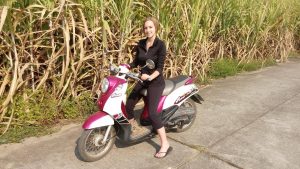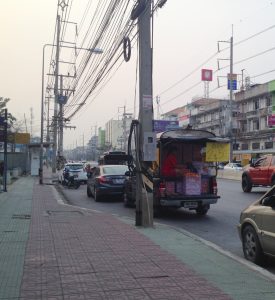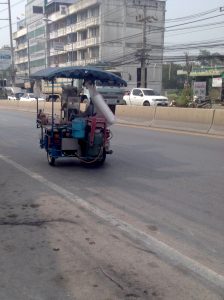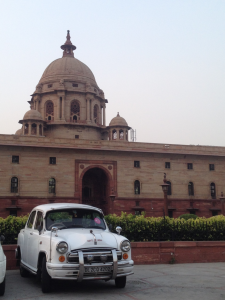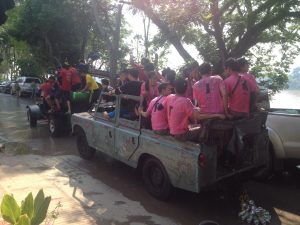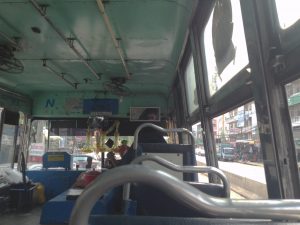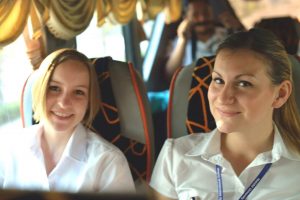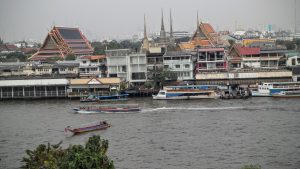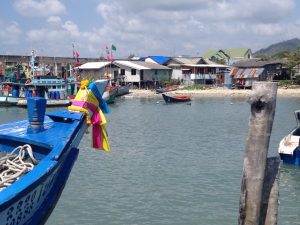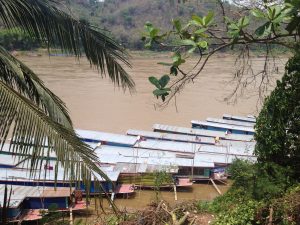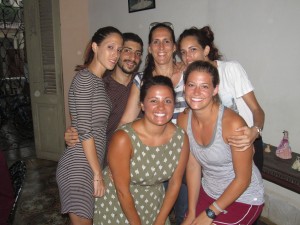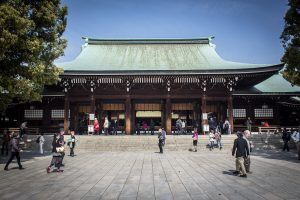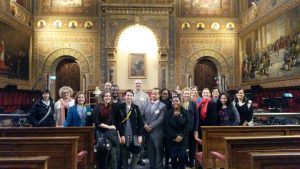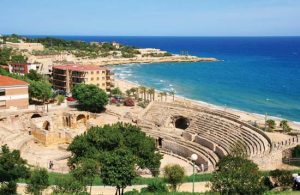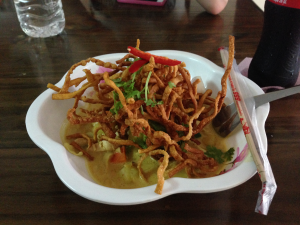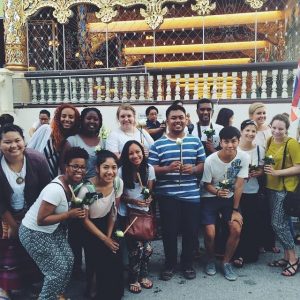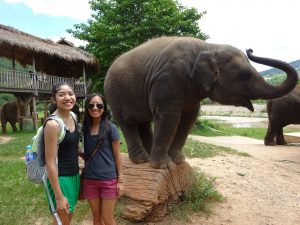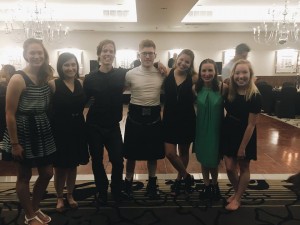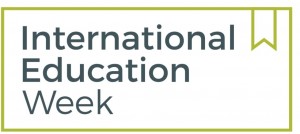by Christin Cook
One of my very first impressions of Thailand was how different the transportation was from that found in the United States. After disembarking from the plane, after far too many hours spent awake, the hour-long drive to Salaya provided me with a dizzying view from my window. This impression was reinforced during my semester there, as well as my time spent traveling to other regions in Southeast and South Asia. I wanted to share some of the interesting modes of transportation I saw during my 5 months in Asia. This list is by no means comprehensive, but it gives a glimpse to the eclectic and always interesting mix that can be found, from the gravelly back roads to the massive highways.
Motorbikes
Motorized Food Stalls
I quickly found that many of the best restaurants in Thailand could roll away on a moments notice. Most street stalls have wheels but the level of power greatly differs, for example, some are attached to motorbikes and others to bicycles.
Auto Rickshaws
Auto rickshaws, or Tuk Tuks were ubiquitous in all the countries I visited. They can be a fun way to see a new city, but keep in mind they vibrate intensely and offer no protection from the often-horrendous traffic pollution.
Cars
I saw a huge variety in the types of cars driven in Southeast Asia. In Thailand, I found that the majority was in very good repair, sometimes more so than in my home city it seemed. This is a picture of the old fashioned white cars that appeared to be popular among politicians in India.
This is an image from the New Year’s water celebration in Laos, in which people both in and out of the cars douse each other with water.
Buses
This is a typical bus that I would take to classes in the morning. The doors did not function anymore, which was nice as it provided a breeze on hot mornings. Large buses, often double decker, were also very common for tours and trips both domestic and international.
This is an image from a University club field trip to Ayutthaya, Thailand with Thai and other international students.
Boats
Waterways remain an integral part of everyday life in Southeast Asia, whether for transportation, shipping, or recreational purposes. In central Bangkok, boats carry passengers and cargo through the canals.
In this image you can see brightly painted boats that carry passengers from the mainland to smaller islands off the coast.
And in this image, rows of boats are moored along the sleepy Mekong River.
There are so many more that could be added to the list…from the crowded overnight buses, to the speeding vans, to the converted pickup trucks, Southeast Asia has it all. To me, this fascinating variety seems entirely at home among the vibrant, often chaotic, bustling everyday life that attracted me from my very first day there.
Christin Cook studied in Thailand in spring 2015. When will you study abroad? For more information about study abroad options, scholarships and the study abroad process, please contact internationalaffairs@chatham.edu or visit us at the Office of International Affairs in Falk Hall, lower level.

